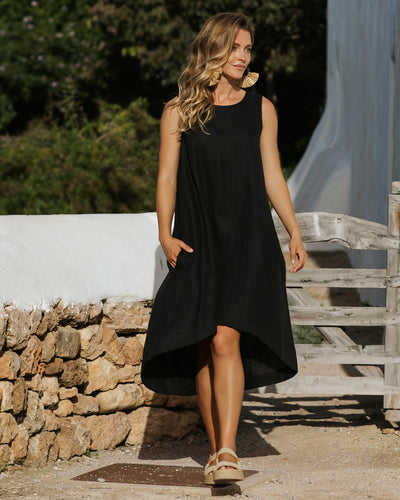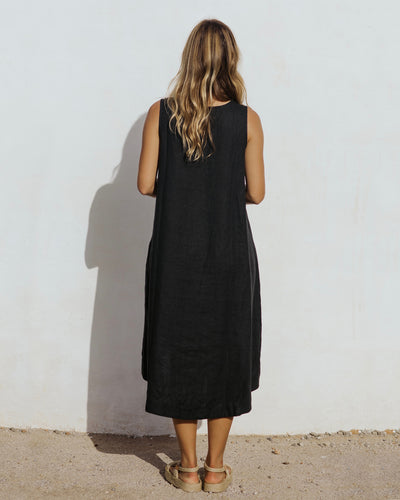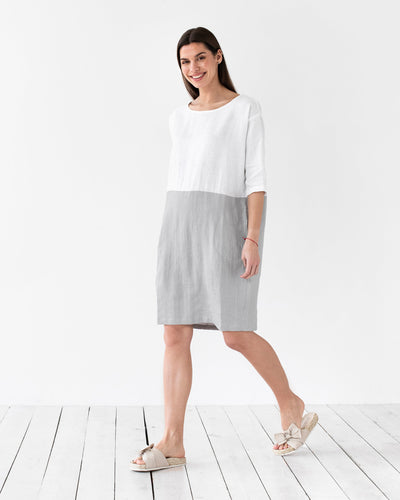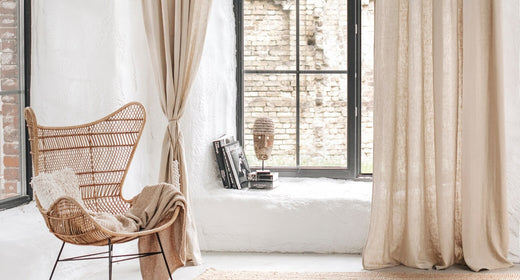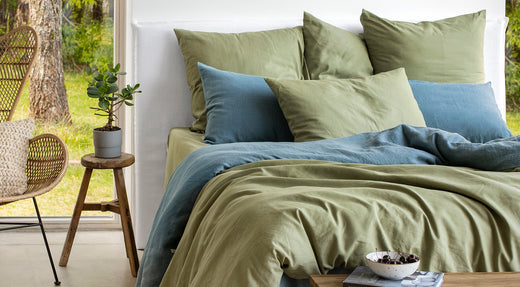Are Linen Masks Effective?
- Face masks, covering our mouth and nose have become the main piece of accessory nowadays.
- Appropriately made and correctly worn face covering can prevent us from getting coronavirus.
- The variety of masks have grown rapidly. However, not all face masks are equal. In the article below, we'll explain to you why wearing a mask is necessary during COVID-19 pandemic, what are the best fabrics for face masks and how to know if the mask is the right fit.
Wearing a mask is now a necessity for everyone in most countries. But due to a large population, there is a higher chance for personal protective equipment shortage. To make sure we all have our own protective face mask, health authorities recommend cloth masks as alternatives.
In addition to wearing a mask, the current situation requires us to regularly wash our hands, maintain social distance in order to stay and keep others safe. However, with the wide variety of different fabrics masks, it can be difficult to decide - which type of mask suits you best? The answer here depends on several factors such as the quality of the material it is made of, and how it fits on your face.
The best mask should offer you protection and convenience at the same time.
Why is it Important to Wear a Face Mask During Coronavirus Pandemic?
There are lots of discussions going on about the effectiveness of the face masks. However, in a crisis related to health, it's always the best to rely to the recommendations of the health institutions.
If infected people sneeze or cough, they release droplets that carry the virus into the air. Also, saliva droplets travel up to a distance of six feet from the source. For this reason, wearing masks, maintaining social distance, and cleaning up is our new norm.
Therefore, such actions are necessary to avoid coming into contact with those respiratory droplets, which increases the spread of the virus.
Additionally, the same droplets can dissolve into the air and become aerosols. Once dissolved, the aerosols can travel to even longer distances and can be inhaled into the lungs. What happens afterward, perhaps, we have all heard.
Masks act as protective gear because they prevent you from inhaling the infected aerosols.
What Fabrics are Recommended for a Facemask?
In theory, a facemask with a cloth material can help prevent the spread of the virus. However, more effective ways should still be considered. And when choosing a cloth face mask, form and function should be the primary concern.
Since cloth face masks do not allow air to pass through freely, the air might find its way around the mask’s edges. When this happens, the mask’s protective qualities become uncertain.
However, a cloth face mask does feature a tighter weave, which is another essential aspect to consider. To ascertain the fabric's quality, hold the mask up to the light. If you can see the thread count, then that mask won’t make a good filter.
Moreover, cloth face masks should feature at least two tightly-woven fabrics consisting of cotton and linen. Multiple layers masks offer better protection than the one layer mask.
Cotton, for example, is proven to be more three-dimensional structured, which makes it a better option than synthetic fiber. Additionally, it performs at a higher weave density, making it an ideal filtration material for face masks.
Masks made of synthetic material are also a good bet for protection. However, they don't offer good breathability and filtering experiences compared to cotton-made face masks.
Face Masks Made of Linen
If unaware, smooth linen is a more useful material for face masks. That's because soft linen has the following characteristics:
• Exceptionally breathable;
• Natural and ecological;
• Antimicrobial and hypoallergenic;
• Shrugs dirt easily;
• And it's more sustainable and eco-friendly;
What's more, you can wash your linen cloth face mask once you are home and leave it to dry overnight. It's also possible to clean the mask with a washing machine at -40C.
Most linen masks have an insert slot for adding a surgical mask or filter for extra protection.
Although linen masks aren't substitutes for medical masks, using them appropriately ensures more effective results. At the same time, surgical masks stand as the best solution for protecting yourself and others from the spread of Covid-19.
Therefore, make sure you have one inside your linen or any cloth face mask you use.
Why a Fitting Mask is Important
For adequate protection, you need a mask that appropriately hugs your face. If not, leakages from the sides may increase by 50%, causing more risk to your health. Therefore, make sure that your chosen cloth mask hugs you firmly from the nose down to the chin.
Picking the Best Mask for You
Below are the best approaches when trying to find the best (most effective and protective) mask:
• Fitting – choose a mask that can fit your face snuggly but not too tightly.
• Breathability – ensure that you have enough room to breathe. Keep in mind that you'll have to wear that mask both inside (where it might be hot), and outside.
• Moisture-Free – a good mask should be able to absorb moisture. This is especially great for people who wear glasses as their specs won’t fog from such moisture.
• Flexibility – the mask should be secure and easy to use.
• Sustainability – choose a mask that can deliver long-term usability. It would be the best, if it could also be washed and dried easily. That's why we recommend masks made of natural materials (at least one layer) - they are ecological, durable and easy to take care of.
Also, don't forget - cloth face masks should be washed daily and reused when only completely dry.
All things considered, face masks could provide a great protection if they are made of the right material and fit your face appropriately. Remember, a mask protects others more than yourself. So, ensure you wear one that firmly hugs your face well.
 United States
United States


